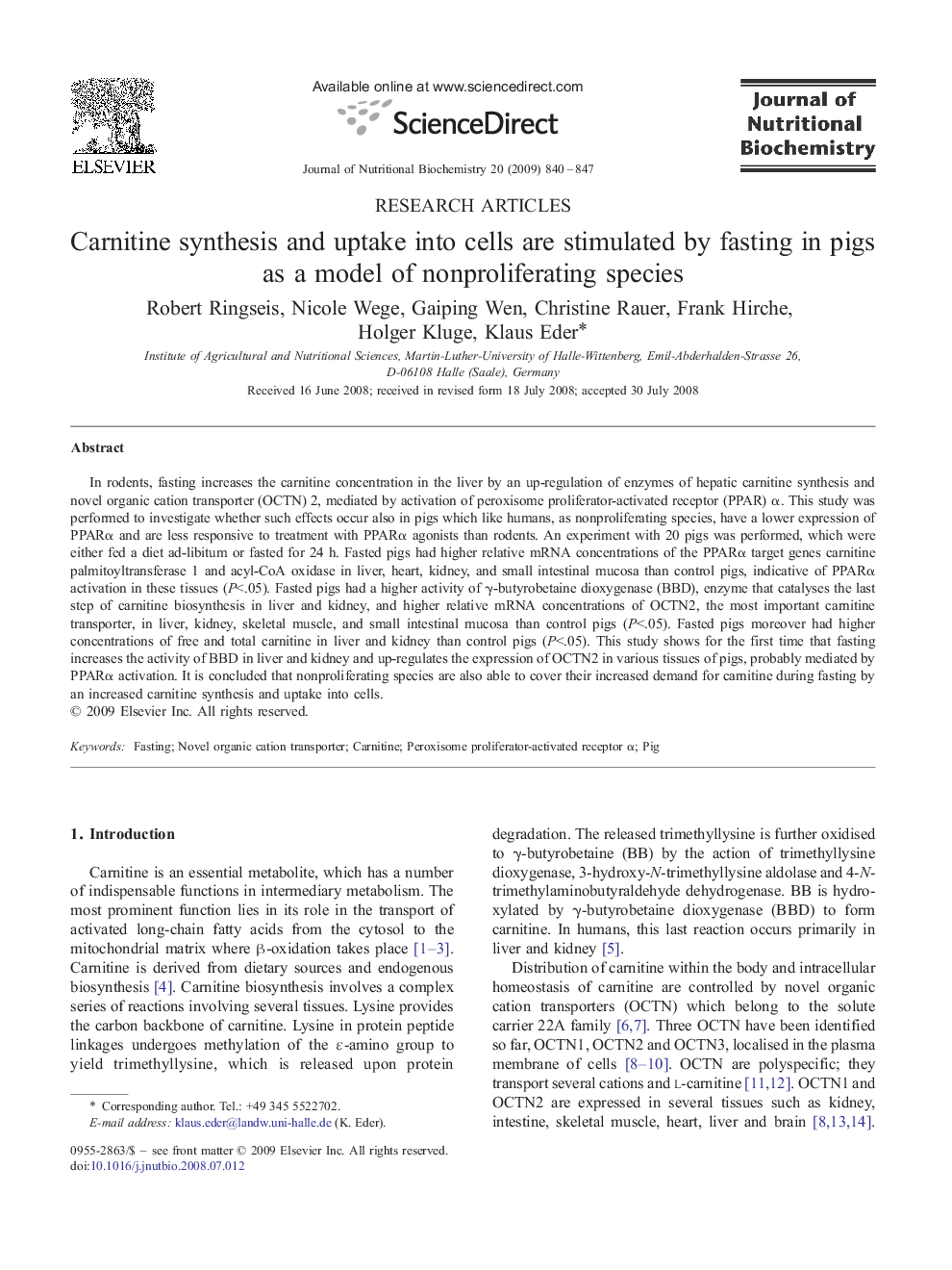| Article ID | Journal | Published Year | Pages | File Type |
|---|---|---|---|---|
| 1990064 | The Journal of Nutritional Biochemistry | 2009 | 8 Pages |
In rodents, fasting increases the carnitine concentration in the liver by an up-regulation of enzymes of hepatic carnitine synthesis and novel organic cation transporter (OCTN) 2, mediated by activation of peroxisome proliferator-activated receptor (PPAR) α. This study was performed to investigate whether such effects occur also in pigs which like humans, as nonproliferating species, have a lower expression of PPARα and are less responsive to treatment with PPARα agonists than rodents. An experiment with 20 pigs was performed, which were either fed a diet ad-libitum or fasted for 24 h. Fasted pigs had higher relative mRNA concentrations of the PPARα target genes carnitine palmitoyltransferase 1 and acyl-CoA oxidase in liver, heart, kidney, and small intestinal mucosa than control pigs, indicative of PPARα activation in these tissues (P<.05). Fasted pigs had a higher activity of γ-butyrobetaine dioxygenase (BBD), enzyme that catalyses the last step of carnitine biosynthesis in liver and kidney, and higher relative mRNA concentrations of OCTN2, the most important carnitine transporter, in liver, kidney, skeletal muscle, and small intestinal mucosa than control pigs (P<.05). Fasted pigs moreover had higher concentrations of free and total carnitine in liver and kidney than control pigs (P<.05). This study shows for the first time that fasting increases the activity of BBD in liver and kidney and up-regulates the expression of OCTN2 in various tissues of pigs, probably mediated by PPARα activation. It is concluded that nonproliferating species are also able to cover their increased demand for carnitine during fasting by an increased carnitine synthesis and uptake into cells.
